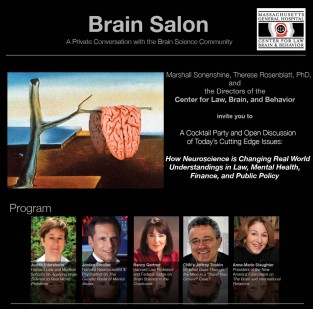CLBB Board Members Anne-Marie Slaughter and Andrew Moravcsik have recently come out with a pair of articles on work-like balance, published in The New York Times and The Atlantic, respectively. In his article,”Why I Put My Wife’s Career First“, Andrew Moravcsik discusses his and Anne-Marie’s initial approaches to child-rearing and his eventual decision to take the role of lead parent. He writes,
“Most two-career families sooner or later find that one person falls into the role of lead parent. In our family, I assumed that role. To be sure, Anne-Marie was actively involved with our boys, taking responsibility for specific chunks of their lives, like dealing with teachers and planning college trips. She was—and is—emotionally close to both sons. And, as she described in her article three years ago, she broke off her government service to help our older son through his rocky transition into adolescence.
But none of this is lead parenting. Lead parenting is being on the front lines of everyday life. In my years as lead parent, I have gotten the kids out of the house in the morning; enforced bedtimes at night; monitored computer and TV use; attempted to ensure that homework got done right; encouraged involvement in sports and music; attended the baseball games, piano lessons, plays, and concerts that resulted; and kept tabs on social lives. To this day, I am listed first on emergency forms; I am the parent who drops everything in the event of a crisis.”
Anne-Marie Slaughter, in “A Toxic Work World“, criticizes rigid workplace cultures that promote overwork, leave little room for caregiving, and prove hostile to many employees, especially women. She notes,
“For many Americans, life has become all competition all the time. Workers across the socioeconomic spectrum, from hotel housekeepers to surgeons, have stories about toiling 12- to 16-hour days (often without overtime pay) and experiencing anxiety attacks and exhaustion. Public health experts have begun talking about stress as an epidemic.
The people who can compete and succeed in this culture are an ever-narrower slice of American society: largely young people who are healthy, and wealthy enough not to have to care for family members. An individual company can of course favor these individuals, as health insurers once did, and then pass them off to other businesses when they become parents or need to tend to their own parents. But this model of winning at all costs reinforces a distinctive American pathology of not making room for caregiving. The result: We hemorrhage talent and hollow out our society.”
Make sure to read “Why I Put My Wife’s Career First“, published in The Atlantic, and “A Toxic Work World“, published in The New York Times!



 Source: The New America Foundation
Source: The New America Foundation
